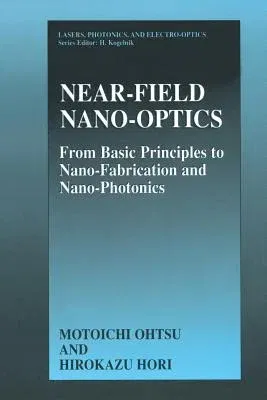Motoichi Ohtsu
(Author)Near-Field Nano-Optics: From Basic Principles to Nano-Fabrication and Nano-Photonics (Softcover Reprint of the Original 1st 1999)Paperback - Softcover Reprint of the Original 1st 1999, 15 October 2012

Qty
1
Turbo
Ships in 2 - 3 days
In Stock
Free Delivery
Cash on Delivery
15 Days
Free Returns
Secure Checkout
Part of Series
Lasers, Photonics, and Electro-Optics
Print Length
386 pages
Language
English
Publisher
Springer
Date Published
15 Oct 2012
ISBN-10
1461371929
ISBN-13
9781461371922
Description
Product Details
Authors:
Book Edition:
Softcover Reprint of the Original 1st 1999
Book Format:
Paperback
Country of Origin:
NL
Date Published:
15 October 2012
Dimensions:
22.86 x
15.24 x
2.11 cm
ISBN-10:
1461371929
ISBN-13:
9781461371922
Language:
English
Location:
New York, NY
Pages:
386
Publisher:
Weight:
539.77 gm

